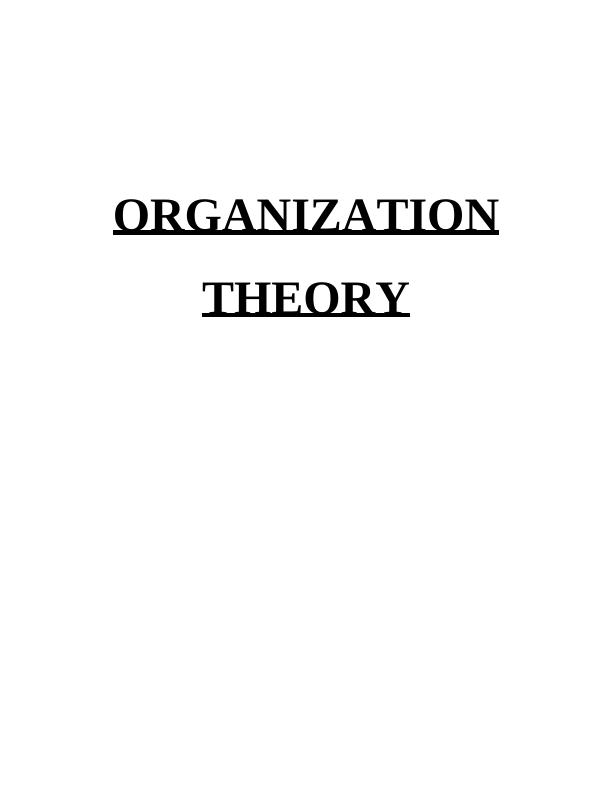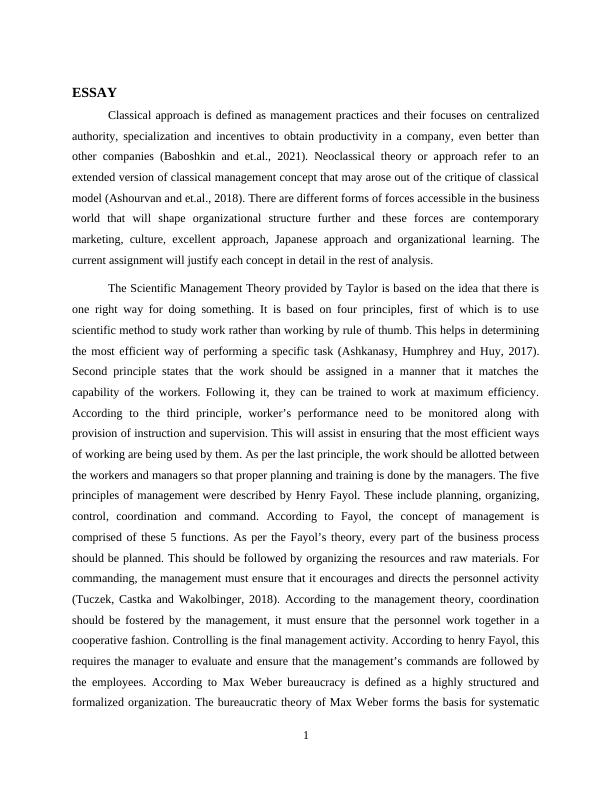Organisation Theory: Classical and Neoclassical Approaches, Contemporary Marketing, Japanese Approach, Organizational Learning and Culture Excellence
8 Pages2696 Words254 Views
Added on 2023-06-10
About This Document
This essay discusses classical and neoclassical approaches, contemporary marketing, Japanese approach, organizational learning and culture excellence in shaping organizational structure. It also highlights the impact of each concept on the performance of management and ventures in generating profits.
Organisation Theory: Classical and Neoclassical Approaches, Contemporary Marketing, Japanese Approach, Organizational Learning and Culture Excellence
Added on 2023-06-10
ShareRelated Documents
End of preview
Want to access all the pages? Upload your documents or become a member.
Organisation Theory: Classical and Neo-classical Origins and Forces Shaping Organisational Structures
|10
|2567
|1
Organisational Theory
|9
|2440
|56
Fredrick Taylor Management Theory
|10
|715
|19
Classical and Neo Classical Theory in Organizational Performance
|9
|2554
|52
Organisation Theory: Classical and Neo-Classical Origins and Future Organisational Structures
|9
|2533
|81
BMG209: Introduction to Management and Leadership
|11
|3118
|44



